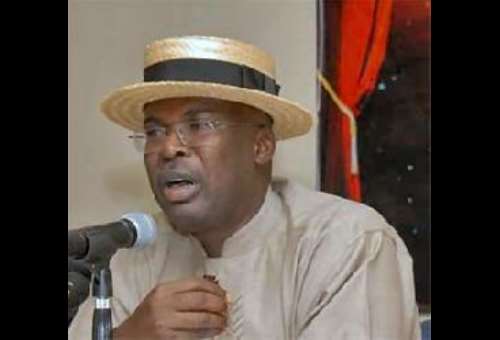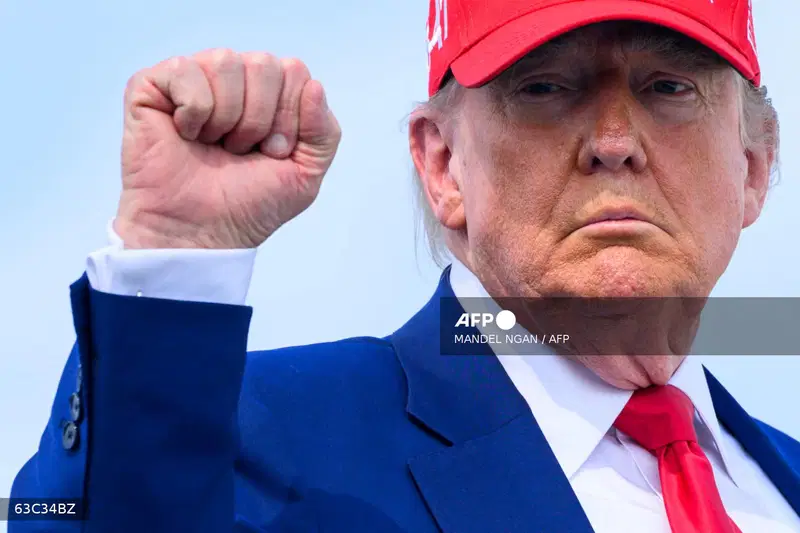Headline
Nigeria To Grow Gas Reserves To 600 Trillion Cubic Feet — Minister

The Minister of State for Petroleum, Chief Timipre Sylva, says the Federal Government is currently working to grow the country’s gas reserve from 206 trillion cubic feet to 600 TCF.
Sylva gave the assurance on Wednesday at the 23rd World Petroleum Congress in Houston, Texas, U.S.
The News Agency of Nigeria (NAN) reports that the minister spoke at a session themed ” Regional Development and Opportunities in Africa”.
He said the increase would position Nigeria among the countries with the highest gas reserves in the world.
According to him, the 600 trillion cubic feet reserve will enable Nigeria to achieve the desired development required of a gas nation.
“We have a lot of gas in Nigeria. We currently have 206 trillion cubic feet of gas reserves.
“This number is already discovered in gas reserves and the 206 trillion cubic feet reserve were discovered while looking for oil; so it was accidentally discovered.
“We were actually going to look for crude oil and we found gas, and in that process of accidental discovery of gas, we have found about 206 tcf.
“So, the belief is that if we really aim to look for gas dedicatedly, we will find up to 600 trillion cubic feets of gas,” the minister said.
Sylva said that the forum provided an opportunity to share accomplishments and incentives within the industry which enhance Nigeria’s investment value preposition.
He explained that so far, gas was being used as a transition fuel as Nigeria and Africa as a continent do not contribute more than one per cent as carbon emission aggravating the global warming situation.
He said: “The future of oil and gas industry in Nigeria is still very bright when we talk about energy transition, we are not expected that oil will be discarded the next day.
” We are saying that over the years, oil will account for less and less percentage in the global energy mix.
” It means that oil is still going to be relevant but it will not to be as relevant as it is today, but it not going to happen just now.
“It’s going to happen years to come, so there is still a lot of opportunities in growing the oil industry.
“That’s why we are here to collaborate with the rest of the global community to develop oil industry.
“We’ve never discountenance that the world is serious about energy transition.”
He added that Net-Zero target proposed by Mr President Muhammadu Buhari during the COP-26 conference required sustained financial assistance.
He said that technology transfer and capacity building from international partners willing and able to assist in that regard would be welcome.
The minister added that Nigeria still required fossil fuels, especially gas, as its base-pad energy source to address energy poverty and power supply in the country.
READ ALSO: Cooking Gas Price Jumps By 240% As Marketers Halt Imports
“We have declared gas as our transition fuel, our pathway to net-zero carbon emissions. This presents investment opportunities given the oil and gas reserves which can be commercialised,” he noted.
Sylva said that despite the challenges and impacts of COVID-19 pandemic on the nation’s economy in general, and to the oil and gas industry in particular amid global energy transition drive, the Nigeria oil industry still held profound opportunities.
The minister said that discussion had commenced with Afrexim Bank to create an energy bank which will finance fossil fuel projects in Nigeria and Africa continent.
He said this had become necessary because of the stance of the international financial ecosystem on funding fossil fuel projects.
Headline
U.S. Lawmaker Reacts To Nigeria, U.S. Airstrikes

United States Congressman, Riley Moore, has stated that President Donald Trump is determined to put an end to the killing of Christians in Nigeria, warning that further action may follow if the violence persists.
Moore made the statement on Friday via his official X handle.
According to the lawmaker, the strike represents the first step in addressing what he described as the ongoing slaughter of Christians and the broader security crisis affecting Nigerians across religious and ethnic lines.
READ ALSO:US Dept Of War Shares Video Of Air Strikes In Nigeria
“President Trump has been clear that the killing of Christians in Nigeria must end,” he said.
He that the administration’s resolve on the matter should not be underestimated.
“As I stated at the outset: Do not test President Trump‘s resolved in this matter.
READ ALSO:JUST IN: US Forces Bomb Terrorists Camps In Nigeria
“Tonight’s strike in coordination with the Nigerian government is just the first step to ending the slaughter of Christians and the security crisis affecting all Nigerians,” he said.
He stressed that the operation signals a stronger stance by the United States in support of Nigeria’s efforts to tackle terrorism and violent extremism, noting that further measures could be taken if the situation does not improve.
Headline
US Dept Of War Shares Video Of Air Strikes In Nigeria

A video footage of the US military air strikes in Nigeria has emerged.
The video was released by the US Department of War following its air strikes against terrorists in Sokoto.
Earlier, the US secretary of War, Pete Hegseth had confirmed that military air strikes hit terrorists in Nigerians, saying it was deadly.
Later on, the US. African Command, confirmed that it conducted the attacks described as very deadly by President Donald Trump.
Trump said he was only keeping the promise he made earlier last month to strike the terrorists he believes are killing innocent Christians.
READ ALSO:JUST IN: US Forces Bomb Terrorists Camps In Nigeria
Although described as powerful and deadly, the casualty caused by the attack is yet to be released.
Explaining further, security expert, Brant Philip, said the strikes may have been launched “from the USS Paul Ignatius, using a Tomahawk missile.”
The Nigerian government through its ministry of foreign affairs has also confirmed that the strikes were successful.
Watch video here
Headline
JUST IN: US Forces Bomb Terrorists Camps In Nigeria

United States President Donald Trump said US forces conducted deadly strikes against Islamic State terrorists in northwestern Nigeria, and vowed more attacks if the militants keep killing Christians.
“I have previously warned these Terrorists that if they did not stop the slaughtering of Christians, there would be hell to pay, and tonight, there was,” Trump posted on his Truth Social platform, adding that “the Department of War executed numerous perfect strikes.”
READ ALSO:JUST IN: Kano Lawmaker, Sarki Aliyu Daneji, Dies Hours After Colleague’s Passing
Trump stated that the Department of War “executed numerous perfect strikes, as only the United States is capable of doing. Under my leadership, our Country will not allow Radical Islamic Terrorism to prosper.”
The US president wished everyone Merry Christmas, “including the dead Terrorists, of which there will be many more if their slaughter of Christians continues.”
Details later.

 News4 days ago
News4 days agoPHOTOS: New Era In Furupagha-Ebijaw As Okpururu 1 Receives Staff Of Office

 News3 days ago
News3 days agoUBTH CMD Marks 120 Days In Office, Expresses Commitment To Providing Conducive Working Environment

 News4 days ago
News4 days agoOPINION: Gumi And His Terrorists

 News3 days ago
News3 days agoFIRS Confirms NIN As Tax ID

 News4 days ago
News4 days agoFG Declares Public Holidays For Christmas, New Year Celebrations

 Metro3 days ago
Metro3 days agoFintiri Pardons Man Sentenced To Death For ‘Killing Herdsman In Self-defence’, Others

 News4 days ago
News4 days agoOPINION: Christmas And A Motherless Child

 News3 days ago
News3 days agoOPINION: My Man Of The Season

 News2 days ago
News2 days agoJUST IN: Kano Lawmaker, Sarki Aliyu Daneji, Dies Hours After Colleague’s Passing

 News3 days ago
News3 days agoKWAM 1 Withdraws From Awujale Race, Ends Court Challenge






















